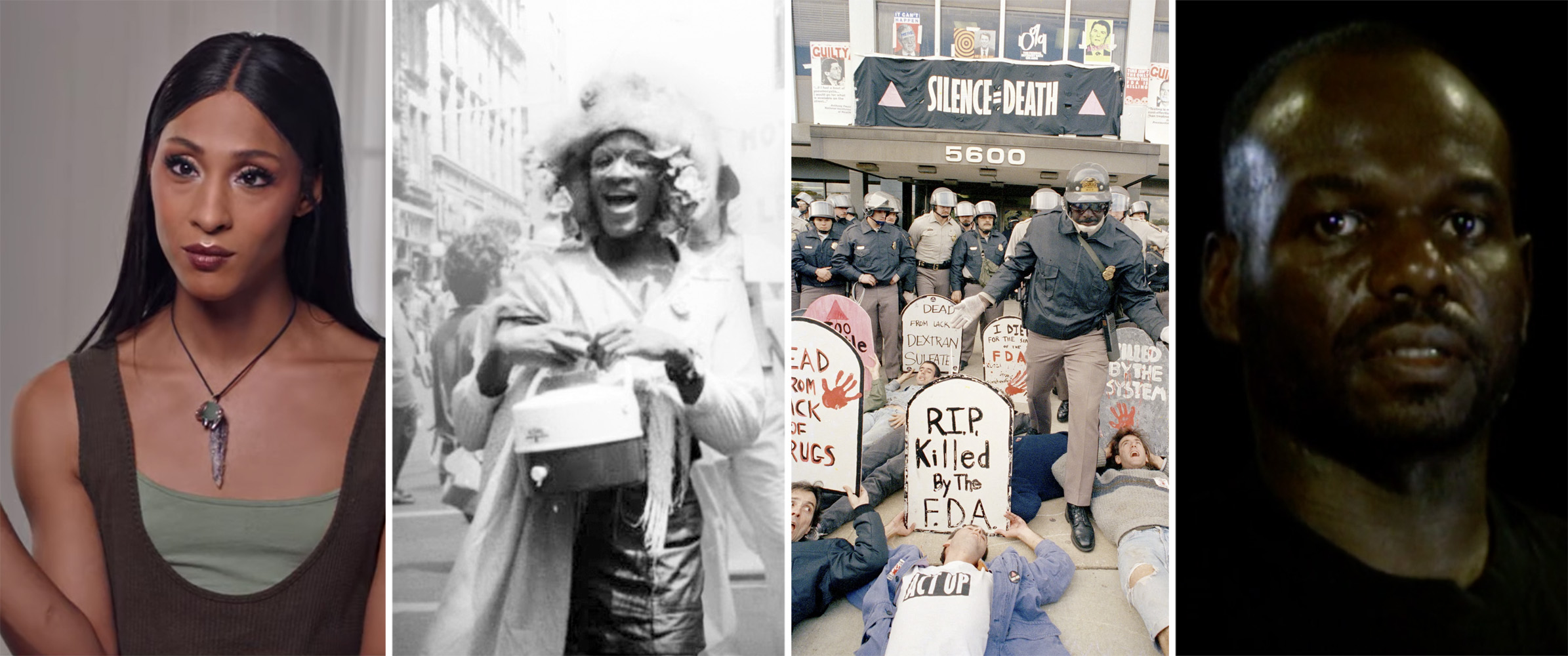
Unit Overview: Documentary
Welcome to Unit 3: Documentary! In this unit, students will examine four documentary films: Disclosure: Trans Lives on Screen, The Death and Life of Marsha P. Johnson, United in Anger: A History of ACT UP, and Tongues Untied. Students will study these films to analyze documentary styles and modes as well as LGBTQ history.
Disclosure: Trans Lives on Screen
During this week of the course, students will examine the arguments made within Sam Feder’s documentary about the history of trans representation in film, and use writings on the documentary form to investigate how Feder communicates his claims.
Readings to accompany Disclosure include:
- Day 2: Patricia Aufderheide, Documentary Film: A Very Short Introduction (Excerpt)
- Day 3: Bill Nichols, Introduction to Documentary (Excerpts)
The Death and Life of Marsha P. Johnson
Students will watch David France’s film, The Death and Life of Marsha P. Johnson, alongside Tourmaline’s short film, Happy Birthday, Marsha! to examine the life and legacy of Marsha P. Johnson, and to address questions of ethics, narrative structure, and form in filmmaking.
Readings to accompany The Death and Life of Marsha P. Johnson include:
- Day 2: Maria Bernadette Calafell, “Narrative Authority, Theory in the Flesh, and the Fight Over The Death and Life of Marsha P. Johnson”
- Day 3: Jeannine Tang, “Contemporary Art and Critical Transgender Infrastructures”
United in Anger: A History of ACT UP
This week, students will study the work of ACT UP (AIDS Coalition To Unleash Power) in New York in the 1980s and 1990s. Students will consider Sarah Schulman’s use of oral history interviews in filmmaking, as well as the direct action video practices of ACT UP members. They will consider Alexandra Juhasz’s claims about the function of “queer archive activism” as they examine the legacy of ACT UP.
Readings to accompany United in Anger include:
- Day 1 and 2: Roger Hallas, Reframing Bodies: AIDS, Bearing Witness and the Queer Moving Image (Excerpts)
- Day 3: Alexandra Juhasz, “Video Remains: Nostalgia, Technology, and Queer Archive Activism”
Tongues Untied
Students will watch Marlon Riggs’ experimental, personal and poetic documentary about Black gay identity. They will study the film alongside Riggs’ essay as well as a contemporary assessment of Riggs’ relationship to the audience.
Readings to accompany Tongues Untied include:
- Marlon Riggs, “Black Macho Revisited: Reflections of a Snap! Queen”
- Leah Anderst, “Calling to Witness: Complicating Narrative Empathy in Tongues Untied”
Unit 3 Response Essay
Consider the concepts we have addressed in this unit. Choose a film from the list below, or consult your teacher about an alternate film choice. Using at least one source we’ve examined in this unit, write an essay of at least four pages in which you examine how the director’s use of cinematic techniques relates to one of the concepts we have examined. Try to address no more than two scenes from the film in your analysis. Remember to provide sufficient descriptions of the scenes you are examining, and analyze them using the language of cinema studies. Be sure to include full citations for all sources. Possible films to examine include:
- All in My Family (2019)
- Before Stonewall (1984)
- The Celluloid Closet (1995)
- Check It (2016)
- For the Bible Tells Me So (2007)
- Gay USA (1977)
- Kiki (2016)
- How to Survive a Plague (2012)
- Mala Mala (2014)
- Paris is Burning (1990)
- A Secret Love (2020)
- The Times of Harvey Milk (1984)